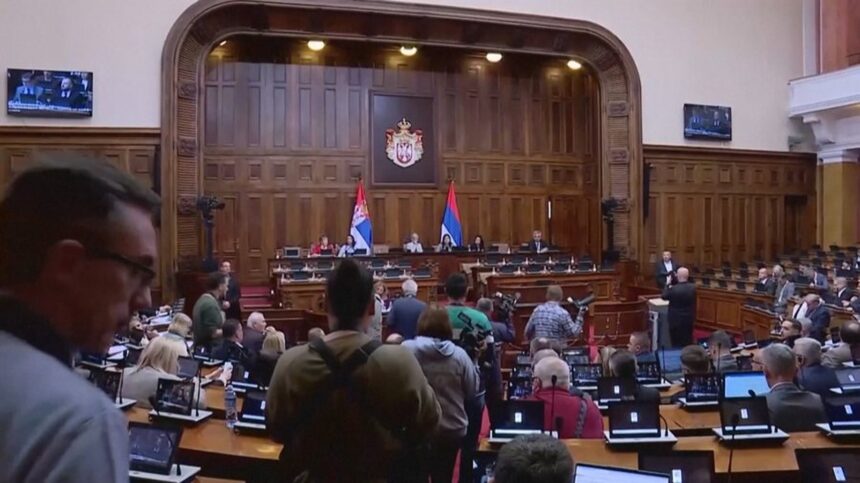The Serbian Parliament has opened debate on a special law that could accelerate the development of a luxury real estate complex by Jared Kushner’s investment firm, the son-in-law of U.S. President Donald Trump.
The project, which would replace a historic military headquarters building classified as a protected cultural heritage site, has sparked fierce criticism from opponents of President Aleksandar Vučić, who accuse his government of selling off Serbia’s history for foreign favors.
“Economic interest cannot be presented as a general public interest. There are other aspects involved — history, ecology, urban planning. All these aspects must be respected and equally considered to reach the best possible solution. Unfortunately, the professional community has been marginalized for years, which is why tragedies happen — like the collapse of the canopy at the Novi Sad railway station,” said architect Miljan Salata, criticizing the government’s disregard for experts.
The two iconic buildings, severely damaged during NATO’s 1999 airstrikes on the former Yugoslavia (then Serbia and Montenegro), were leased last year to Kushner’s U.S.-based investment firm, Affinity Partners, by Serbian authorities.
Experts now warn that the special law could effectively erase Serbia’s cultural protection mechanisms overnight.
“Through this special law, heritage protection can practically be abolished tomorrow. By adopting this law — a procedure I believe is truly unique in the world — the entire system for protecting cultural assets and even the very existence of the Ministry of Culture could be canceled,” said Estela Radonjić Živković from the Institute for the Protection of Cultural Monuments.
The parliamentary session opened with heated questions not only about Kushner’s project but also about Dijana Hrka, the mother whose son died in the Novi Sad train station canopy collapse and who is currently on hunger strike in front of the Parliament, as well as about Serbia’s arms sales to Ukraine and recent incidents in Pioneer Park.
The move has been seen by critics as a desperate attempt by Vučić’s government to win political points from Washington, even at the expense of national heritage and transparency, amid growing public mistrust and accusations of corruption.







